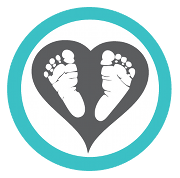The first food allergy guidelines were issued today by the National Institutes of Health's National Institute of Allergy and Infectious Diseases (NIAID). These guidelines include the following information as it relates to pregnancy and breastfeeding.
The panel defines food allergy as "an adverse health effect arising from a specific immune response that occurs reproducibly on exposure to a given food."
Delaying of Foods Not Warranted
The guidelines do not recommend restricting maternal diet during pregnancy or lactation to prevent the development or clinical course of food allergies, but they do recommend exclusive breast-feeding of all infants until age 4 to 6 months, unless medical reasons contraindicate breast-feeding.
According to Dr. Sampson, the guidelines concur with current American Academy of Pediatrics guidelines. "There is no evidence that delaying certain foods, even foods that are considered allergenic, (is) going to have any significant effect on the development of allergy," he said.Once more, exclusive breastfeeding is supported and allergies can be avoided by doing that. It is worth investing in lactation services to be sure a new mom is successful in this effort and supplements should be avoided whenever possible.
Medical reasons not to breastfeed include a very few diseases, taking certain medications (also very few). Unfortunately some mothers and babies miss out on this amazing opportunity without thoroughly checking this out. The Pregnancy Risk Line is the best resource to learn what is likely safe or unsafe since testing by the FDA of drugs does not include pregnant and nursing mothers. Therefore the Physician Desk Reference and package inserts routinely say, "not to be taken by pregnant or breastfeeding women without physician recommendation" or "inadequate information available to determine the safety in pregnant or breastfeeding mothers." The PRL joins forces throughout the nation to gather evidence after thousands of women have used the drug and are able to give a more helpful recommendation for or against breastfeeding. More often than not, the drug is safe. Your physician may be very busy or not committed to successful breastfeeding and may not get this more updated info, relying only on the manufacturer's statement so a pro-active mom is a more informed mom. Call them at (800) 822-2229 or (801) 328-2229.























No comments:
Post a Comment
This blog only reviews comments before posting to avoid hijacking. We will respond to comments Mon-Thurs but we are closed Fri-Sun and legal holidays.